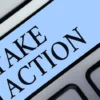
Last week, I shared a bit about my path — from junior accountant to commercial banker to real estate investor and mortgage broker.
But I didn’t tell you the part that shaped how I see everything about money, investing, and risk.
It happened in the bank.
When you work in commercial banking for over 15 years, you see patterns.
You meet the same types of people, hear the same fears, watch the same mistakes… over and over again.
I sat across the table from hundreds of entrepreneurs and investors.
Some were building empires. Some were one bad month away from losing it all.
And here’s what I noticed: They were often using the same tool.
Debt. Or — as I came to see it — leverage.
For some, debt was a springboard. They used it to buy income-producing assets, expand their operations, and take calculated risks.
They had buffers, contingency plans, and a clear strategy for paying it down (or rolling it forward profitably).
For others, debt was an anchor.
They borrowed to keep the lights on, to cover shortfalls, to chase “too good to be true” opportunities without really understanding the numbers.
When the winds changed — interest rates went up, sales slowed, markets shifted — that anchor pulled them under.
Same economy. Same banks. Same interest rates.
The difference wasn’t luck.
It was strategy.
That’s when it clicked for me:
Debt is neither good nor bad. It’s a tool. And if you don’t know how to use it, it can cut both ways.
Think about it like a chainsaw.
In the right hands, it can build something beautiful.
In the wrong hands, it’s dangerous.
The truth is, most Canadians never get taught the difference.
They’re told “debt is bad” — so they avoid it completely and miss opportunities.
Or they’re told “everyone has debt” — so they load up without a plan.
Both paths are risky.
When I left the bank, I took this lesson with me into real estate building, investing, and mortgage brokering.
Today, when I work with clients, I’m not just thinking about getting them the best rate — I’m thinking about how that debt will work for them long after the ink is dry.
Because the goal isn’t just to get a mortgage.
The goal is to make sure it’s the right mortgage, at the right time, for the right reason.
If you’ve been wondering whether you’re using leverage the right way — or you want to know how to start using it strategically — I’d be happy to talk it through.
No pressure. No obligation. Just real conversation.
→ Reply to this email and we’ll set up a time to chat.
Talk soon,
— Vince
P.S.
I send these emails every week to help Canadians understand the new rules of money, real estate, and investing. Sometimes it’s a story from my banking days. Sometimes it’s what I’m seeing right now in the market. Always, it’s about helping you win the new game.








